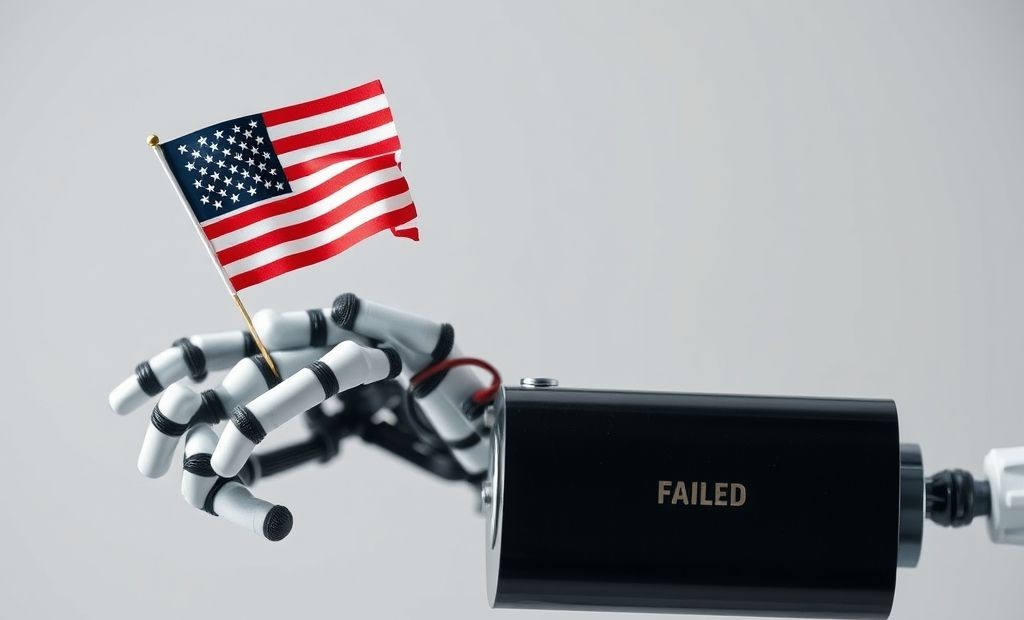US Battery Production: Lessons from Natron’s Closure

Natron’s Liquidation: A Wake-Up Call for US Battery Ambitions The recent liquidation of Natron Energy serves as a stark reminder of the challenges facing the...
⏱️ Estimated reading time: 2 min
Latest News
Natron’s Liquidation: A Wake-Up Call for US Battery Ambitions
The recent liquidation of Natron Energy serves as a stark reminder of the challenges facing the United States in its quest to establish a robust domestic battery manufacturing industry. Natron, once a promising startup focused on sodium-ion batteries, succumbed to financial pressures, highlighting systemic issues that need addressing for the US to compete effectively in the global battery market.
The Promise of Sodium-Ion Technology
Natron distinguished itself by developing sodium-ion batteries, an alternative to the more common lithium-ion technology. Sodium-ion batteries offer several potential advantages:
- Abundant Materials: Sodium is far more abundant and evenly distributed globally than lithium, reducing supply chain risks.
- Safety: Sodium-ion batteries are generally considered safer, with a lower risk of thermal runaway.
- Cost: With cheaper raw materials, sodium-ion batteries could potentially be produced at a lower cost.
Despite these advantages, Natron faced significant hurdles in scaling up production and commercializing its technology. This illustrates the broader difficulties confronting US battery manufacturers.
Challenges to US Battery Manufacturing
Several factors contribute to the struggles of US battery companies:
High Manufacturing Costs
The US often faces higher labor costs, stricter environmental regulations, and increased overhead compared to countries like China, which dominates battery production. This makes it difficult for US companies to compete on price.
Supply Chain Dependencies
The battery supply chain is heavily reliant on foreign sources for raw materials like lithium, nickel, and cobalt, as well as processed components. This dependence creates vulnerabilities and increases costs for US manufacturers. Efforts are underway to diversify the supply chain. The Department of Energy Loan Programs Office offers $150 million loan to Ioneer Resources to develop domestic in order to reduce supply chain dependencies.
Lack of Government Support
While recent legislation like the Inflation Reduction Act (IRA) aims to incentivize domestic battery production, more consistent and comprehensive government support is needed. This includes funding for research and development, manufacturing infrastructure, and workforce training. For example, DOE announces conditional commitment of $500 million to Spruce Power to expand residential to improve supply chain resilience.
Technological Maturity
Lithium-ion technology is well-established and benefits from economies of scale. Alternative technologies like sodium-ion batteries are still in the early stages of commercialization and require further development to achieve comparable performance and cost.
Related Posts

AI in 2026 How Intelligent Agents Are Becoming Trusted Work Partners
In 2026, artificial intelligence has transcended its role as a mere productivity booster, emerging as...
February 4, 2026
Bluesky Enhances Moderation for Transparency, Better Tracking
Bluesky Updates Moderation Policies for Enhanced Transparency Bluesky, the decentralized social network aiming to compete...
December 11, 2025

Google Maps: Gemini Tips, EV Charger Predictions & More!
Google Maps Gets Smarter: Gemini Tips & EV Updates Google Maps is enhancing user experience...
December 9, 2025










Leave a Reply